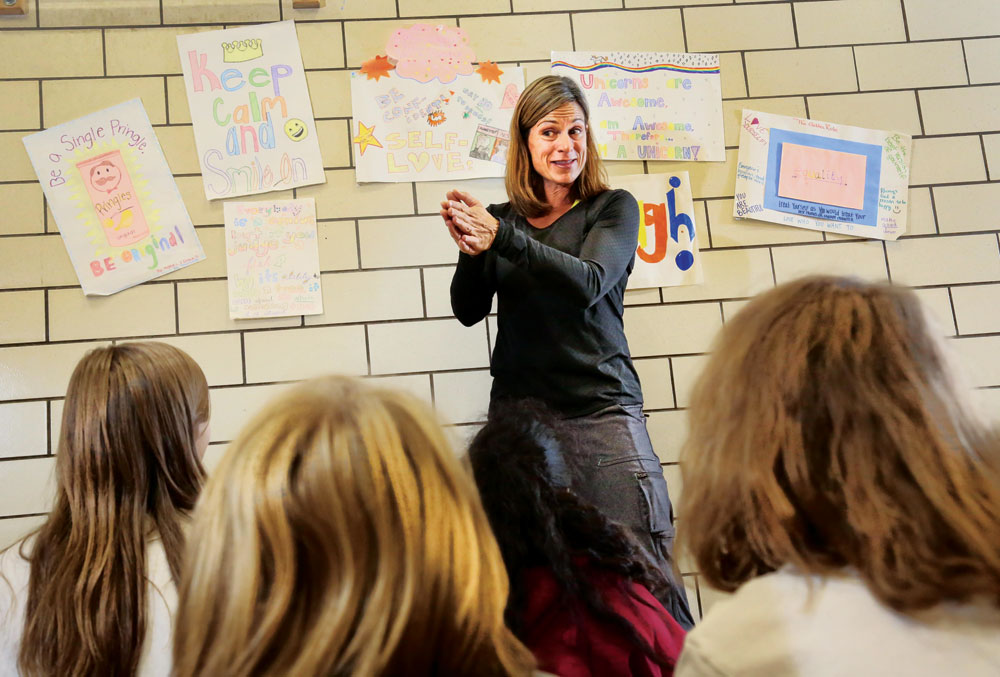
Kendra Collings teaches the “Let’s Talk About It“ class for 8th graders at McAuliffe. (Front Porch file photo.)
Recent reports about widespread sexual harassment in entertainment, politics and newsrooms have captured the attention of the nation. In response, the #metoo movement has burgeoned on social media, with women affected by sexual harassment speaking up about abuses they’ve suffered, many after years of scared silence.
The national #metoo movement gives hope that the culture will change. Women’s voices are finally being heeded, and the powerful men who have committed sexual harassment are being stripped of their control and privilege.
But more quietly, the work to change the culture is taking place in our own backyard, at local middle and high schools that are working to prevent the problems of sexual harassment and sexual assault before they emerge.
“Let’s Talk About It” in Middle School
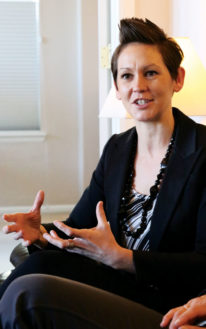
Susie Roman, director of prevention and education for The Blue Bench.
Denver-based nonprofit The Blue Bench works across the state to eliminate sexual assault and diminish its impact through advocacy, prevention and care. Among other programs, The Blue Bench provides sexual assault prevention education, serving 13 schools and an additional 14 community organizations in Northeast Denver.
McAuliffe International School, which serves around 1,000 middle-school students in the Greater Park Hill/Stapleton area, uses The Blue Bench’s “Let’s Talk About It” curriculum to teach its eighth-grade students about healthy relationships and consent in mixed-gender classes.
Susie Roman, director of prevention and education for The Blue Bench, says their developmentally appropriate, scientifically supported approach helps kids talk about healthy and unhealthy relationships, distinguish characteristics of each and understand boundaries.
The curriculum uses scenarios and activities to engage the students. Instructors might describe a behavior and ask kids who think it is healthy or unhealthy to move to opposite sides of a room and then unpack their thoughts about it, said Roman. “We also talk about the range of behaviors … everything from sexual harassment to sexual assault,” says Roman.
Empathy and Peer Relationships
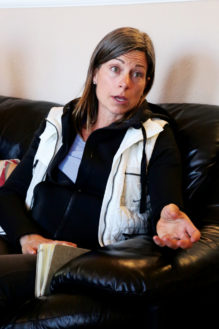
Kendra Collings, PE/Health lead teacher and wellness director of McAuliffe
Empathy can be a powerful teaching tool. Teachers ask, “If somebody’s experiencing unwanted sexualized comments at school, how do you think that person’s going to feel if nobody’s willing to intervene and help them out, and it happens every single day? What environment does that create when they go to school?” said Roman. “We use scenarios particularly around sexting. How might somebody feel if their picture was being shared? Then they have to go school … and people are sharing it and laughing at them.”
They work a lot on how to intervene in such scenarios, especially focusing on how powerful peers can be. Roman describes a scenario where one person demands to see all the texts being sent by a boyfriend or girlfriend, explaining it’s because they care.
“We have a discussion around what’s the difference between behavior that is controlling versus caring, and how do you make that distinction?” Roman says. “We really focus on the social context of it—thinking about the fact that youth are having these conversations among themselves, and talking about what’s going on in their relationships. (We focus on) giving them the skills to be what we call a positive bystander, being able to point out to somebody else if there’s something that seems concerning.”
Consent
The messaging around consent has changed from the days of their parents, noted Kendra Collings, who is the PE/Health lead teacher and wellness director at McAuliffe. “They changed the message from ‘no means no’ to ‘yes means yes’ so that it’s absolutely clear,” said Collings. “And I think that’s probably the most powerful thing [for both] the kids and adults.”
One tool used to explain this “firm affirmative” notion of consent is a quirky video of stick people. One stick person offers another some tea. The video goes on to show that if the respondent doesn’t want tea, changes her mind about tea or becomes unconscious, it is not appropriate to still give her tea. (“Tea” stands in for any unwanted romantic behavior, such as sex).

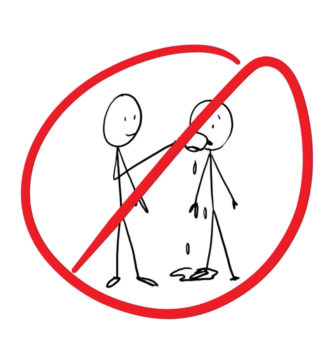
This and the above images use the scenario of offering a cup of tea to show the importance of asking for consent, not imposing one’s wishes on another person.
“Making sure that kids of all genders are really educated about consent, whose responsibility it is, what it looks like to respect boundaries, and then being able to intervene and to tell others when you have boundaries is important,” says Roman. “We spend a lot of time on that.”
Talking to Our Kids
Experts admit that often tweens and teens are reluctant to speak with their parents about romantic relationships. The “Let’s Talk About It” curriculum intentionally harnesses the power of peer relationships to influence romantic/sexual behavior. But there is a lot that parents can and should do to support the process.
Experts advise starting early with such conversations, even in kindergarten, teaching children that their body is their own, and it is not OK for others to touch them. It is important to teach young kids the correct vocabulary for their bodies also, says Roman, to make sure they are able to express their boundaries—or transgressions of their boundaries—when needed, even if that means telling a beloved auntie that they don’t want a hug.
The Blue Bench also offers a program called “Keeping Me Safe” for educators and parents. Offered at schools like McAuliffe and other community organizations, the two-hour workshop helps parents develop strategies to talk with their children about relationships and boundaries. Collings says it is helpful for parents to be prepared with the vocabulary to address whatever situations arise in their children’s lives, even ones involving harassment or assault.
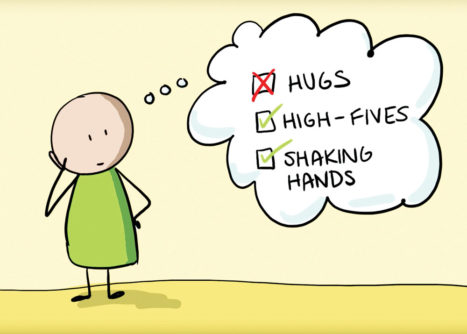
Blue Seat Studios also has the video “Consent for Kids on YouTube. Here a child decides what level of physical contact they are comfortable with.



0 Comments